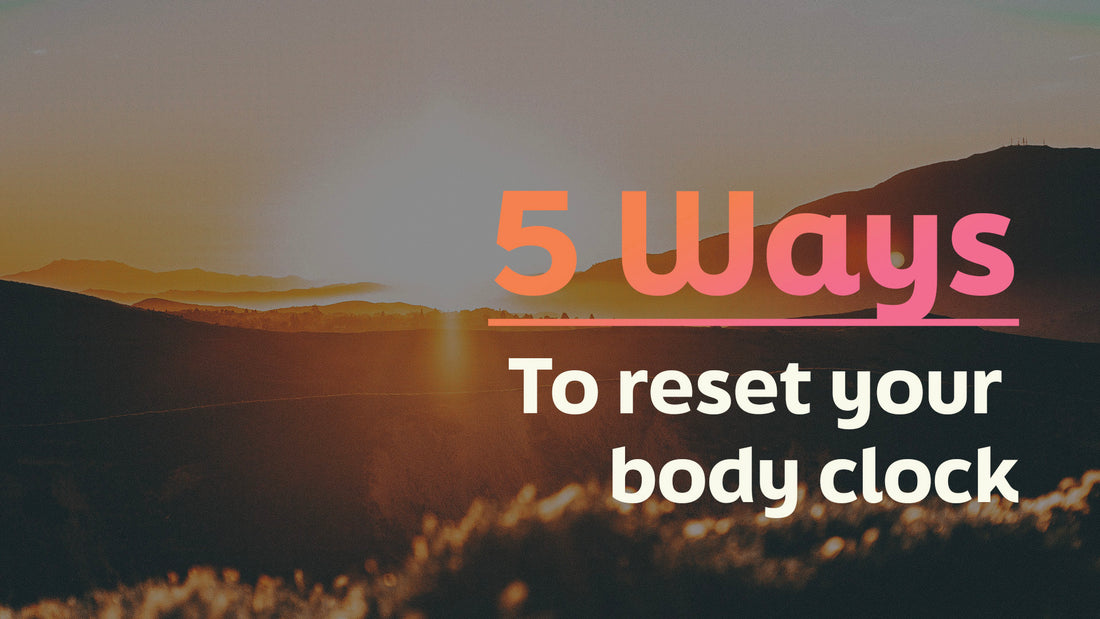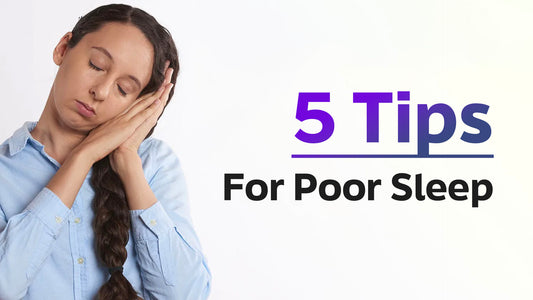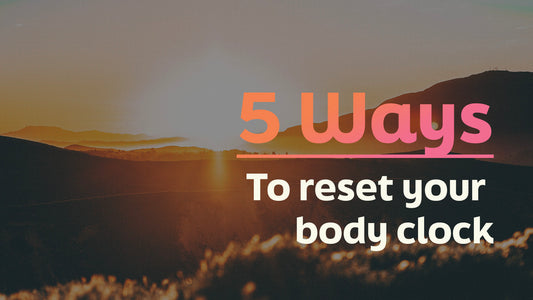Your "body clock" is also known as the circadian rhythm.
You can think of your circadian rhythm as the conductor of your own biological orchestra.
When you listen to a collection of musical instruments played together, it's the conductor's responsibility to ensure they're all synchronised so that the sound appears as something that brings pleasure to our ears.
In a similar way, our circadian rhythm dictates the sounding or function of all of the systems of our body, including, but not limited to those that control our sleep quality, digestion, energy metabolism, and the functioning of our immune system (to name but a few).
It pays to know about these 5 simple ways to reset your body clock and keep your circadian rhythm finely tuned so that the orchestra of your body creates the feelings of energy, happiness and vibrancy that you want to feel.
1 - Watch the sunrise
The type of light given off by sunrise and the 1.5 - 2 hours following is known as 'low solar angle' light. The quality of this light provides a perfect natural spectrum of colours that are designed to wake us up. Go outside and watch the sunrise for 10-15 minutes. If you can't make it to sunrise, make sure you're getting your early morning light exposure as close to sunrise as possible. Do not wear sunglasses as this blocks the vital light signal.
2 - Watch the sunset
The light given off in the hours prior to sunset is also considered 'low solar angle' light. Sunset has higher proportions of red and yellow light which calm the brain and signal to the body clock preparing it for sleep. Go outside and watch the sunset. If you can't make it to sunset, be sure to spend some time outdoors in the 2 hours leading up to sunset when that low solar angle light is primed to help tune your circadian rhythm.
3 - Block blue light at night
Blue light is great for keeping us awake and alert during the daytime (it's abundant in sunlight), but that's not what we need in the evening and nighttime. Directly following sunset, you should wear amber or red lenses blue light blocking glasses (these colours block 100% of blue light). Turning off modern lighting and screen devices is the best way to avoid the wrong types of light at night, but this can be hard... so wear your glasses and keep night mode activated on your digital devices. Less blue light = more melatonin production = falling asleep easier, sleeping deeper and waking up feeling well-rested.
You might want to learn more about or purchase a pair of these glasses for yourself and your children on our website.
4 - Eat with the clock
When and what you eat can help to reset your body clock. Avoid eating within 2 hours of sleep as this will mean your body is tasked with digesting food instead of sleeping. Instead, your sleep and body clock will benefit from bigger daytime meals and smaller dinners to aid digestion before bed. At the very least, you should practice a 10-12 hour fast between breakfast and dinner, trying to end your last meal of the day 3-4 hours before bed (for example, dinner at 7 PM and breakfast at 7 AM). Eating around the clock is not natural.
5 - Listen to the signals given off by your body
Your production of the sleep hormone melatonin cycles up and down every 24 hours. In the mid part of the evening (around and particularly after sunset), melatonin is released naturally which should cause you to begin to feel a bit sleepy (this is around the time that you give off your first yawn). That's unless you've been stimulated by artificial blue light from screens and devices which are confusing your body clock and making the melatonin sleep signal weaker. Nature designed our bodies to wind down gradually following the natural evening increase in melatonin production. Don't fight against this!
There's much more to be said on the topic of sleep and circadian rhythms, but these are 5 fundamental steps that can help everyone to ensure that their body clock is functioning in well to promote health and happiness.
For more sleep-related articles please visit: https://www.sleepbetterlivebetter.co.uk/
In health,
Dan


